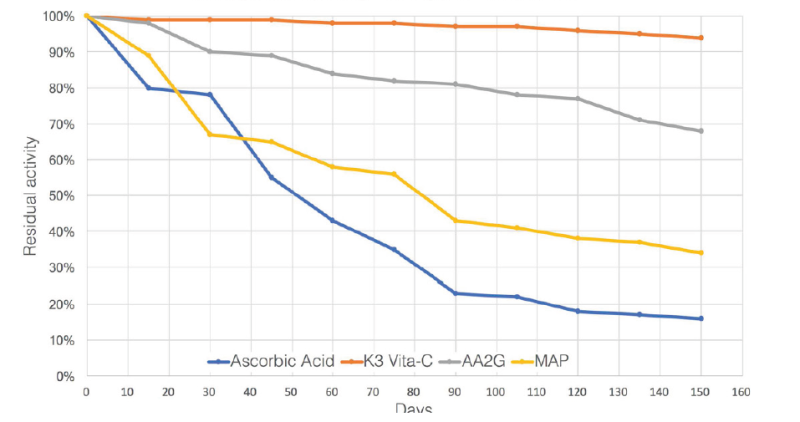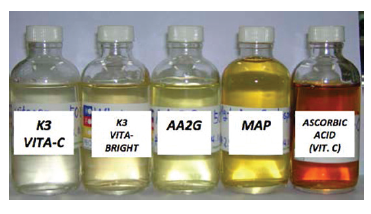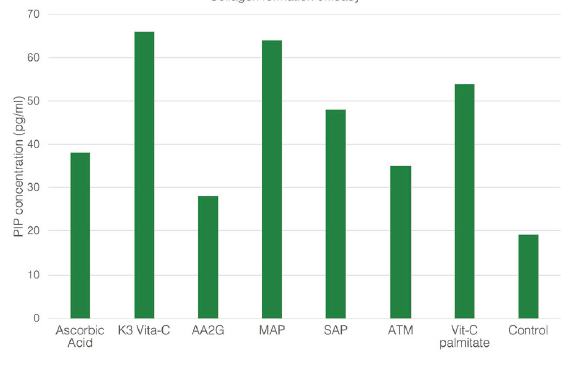Enhanced TDS
Knowde-enriched technical product data sheet
Identification & Functionality
- INCI Name
- Ingredient Origin
- Vitamin Type
- Cosmetic Ingredients Functions
- Technologies
- Product Families
Features & Benefits
- Benefit Claims
- Labeling Claims
- Product Features
- Highly stable water-soluble Vitamin C derivative
- Effective in collagen synthesis at very low usage levels
- No discoloration of formulations
- Tyrosinase inhibitor
- Global compliance (including China)
- The No-Compromise Vitamin C Solution
Adding a Vitamin C derivative to a formulation is a fantastic way to boost the claims of a product. Those claims are only as strong as the formulation itself though. If a formulation is compromised because of a raw ingredient, the appeal is lost. Instep K-3 Vita-C, the no-compromise Vitamin C solution.
Applications & Uses
- Markets
- Applications
- Formulation Guidelines
- K3 Vita-C is used in the water phase of formulations
- Recommended dosage: 0.1 - 1%, 0 - 1% max in Australia
- Optimum pH range: 1 - 10
- Temperature: compatible with normal processing temperatures
- Simple mixing and dissolving into the water phase
Properties
- Physical Form
- Soluble in
- Water
- pH
- 1 - 10
Technical Details & Test Data
- Product Benefits Over Test Results
Stability/Residual activity -1% aqueous solution 25°C

Stability of K3 Vita-C, Ascorbic acid, AA2G and MAP –1% aqueous solution stored at 25°C

Discoloration behavior of 1% aqueous solutions after 30 days at 50°C
K3 Vita-C is very effective in collagen formation. In-vitro tests show that K3 Vita-C outperforms ascorbic acid and other Vitamin C derivatives, while long-term stability of the molecules is not even taken into consideration.
Collagen Formation Efficacy

Collagen formation effi cacy of K3 Vita-C compared to Ascorbic Acid and other Vitamin
C derivatives. In-vitro test involving culturing of cells in presence of the ingredients tested. Concentration of procollagen Type I C-peptide (PIP) generated was measured for each system.